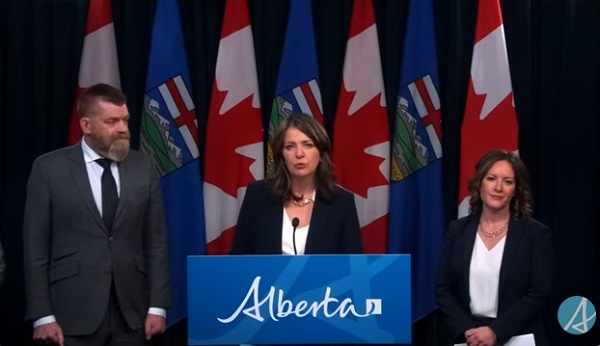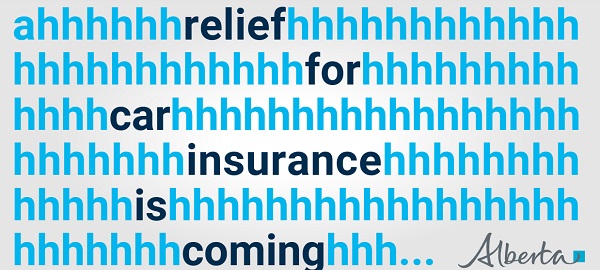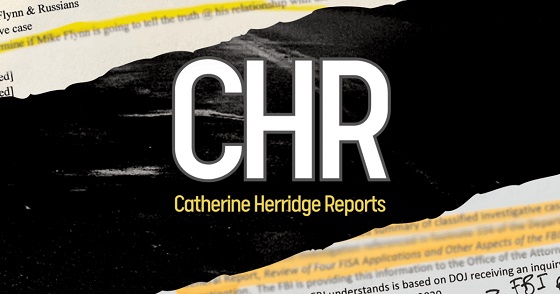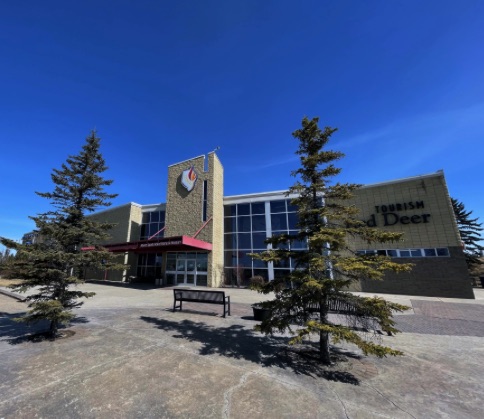Alberta
Close contact businesses to be closed – Gatherings no larger than 15 people – Protection for renters

From the Province of Alberta COVID-19 Update – March 27
Additional restrictions to stop spread of COVID-19
To protect the health and safety of Albertans, mass gatherings will be limited to 15 people and more restrictions will be placed on available services.
As a result of the evolving COVID-19 pandemic, attendance at certain businesses and organizations across the province will be prohibited effective immediately.
“This was a difficult decision to make, but we must do everything we can to protect the safety of Albertans and limit the spread of COVID-19. Grocery stores, pharmacies, delivery services and other essential businesses will continue to provide Albertans with the goods and services they need, and we’ll look to Alberta’s business leaders to find innovate ways to continue remote operations and protect jobs. These businesses must do everything they can to safeguard the well-being of the hardworking employees on the front lines.”
Restrictions will be in place for the following classifications of business:
- Close contact businesses including hair salons and barbershops, tattoo and piercing studios, esthetic services, as well as wellness studios and clinics and non-emergency and non-critical health services provided by regulated health professionals or registered professionals including dentistry, physiotherapy, massage, podiatry, chiropractic and optometry services.
- Dine-in restaurants will no longer be able to offer dine-in service. Take-out and delivery services will continue to be available.
- Non-essential retail services that fall into the categories of clothing, computer and gaming stores, and services in shopping malls and shopping centres such as hobby and toys, gift and specialty items and furniture.
A more complete list of affected businesses is available online.
In addition, people are prohibited from attending gatherings of more than 15, and they must observe two metres of social distancing. This includes:
- open spaces such as trails, fields and parks
- public and private gatherings where people are brought together in a single room or space at the same time, including funerals, weddings and other formal and informal events
Further details on gathering restrictions are available online.
Workplaces that have not been ordered to close can continue to have more than 15 workers on a worksite as long as those business maintain public health measures, including two metre social distancing, hygiene enforcement and processes that ensure that any person who is ill does not attend these spaces.
“These are aggressive measures and we don’t take them lightly. We need to do everything we can to flatten the curve and keep people healthy. I strongly encourage all Albertans to stay close to home as we are all in this together. Our collective action will protect our family, friends and neighbours.”
Any business or organization not following the public health order will be subject to a fine. Courts have the power to administer fines of up to $100,000 for a first offence and up to $500,000 for a subsequent offence for more serious violations. Individuals aware of any businesses violating these orders should submit a complaint online immediately.
Quick facts
- All Albertans have a responsibility to help prevent the spread. Take steps to protect yourself and others:
- practise social distancing
- stay home and away from others if sick or in isolation
- practise good hygiene – wash hands often for at least 20 seconds, cover coughs and sneezes, and avoid touching your face
- monitor for symptoms, such as cough, fever, fatigue or difficulty breathing
- Anyone who has health concerns or is experiencing symptoms of COVID-19 should complete an online COVID-19 self-assessment.
- For recommendations on protecting yourself and your community, visit alberta.ca/COVID19.
Increased security for Alberta rentersThe Government of Alberta is providing security for Alberta residential renters during the COVID-19 pandemic.This is part of an overall $7.7-billion package in direct supports and deferrals designed to relieve the immediate financial burden brought on by the crisis and provide stability during these unprecedented and uncertain times. The new protections mean:
Payment plans and eviction processWhile Alberta is in a state of public health emergency, landlords must attempt to work out a payment plan with tenants who are unable to make their full rent when payment is due. The Residential Tenancy Dispute Resolution Service (RTDRS) will not hear applications that could lead to eviction due to non-payment unless a reasonable attempt has been made to work out a payment plan. Rental increasesUntil the state of public health emergency has been lifted, landlords cannot raise the rent on residential properties or mobile home sites, even if notice of an increase has already been given. Late feesUntil June 30, landlords cannot further penalize tenants who are late on rent by charging late fees, even if the signed rental agreement states that a late fee can be applied. Landlords will also not be able to retroactively collect late fees for this period.
Quick facts
Alberta has a comprehensive response to COVID-19 including measures to enhance social distancing, screening and testing. Financial supports are helping Alberta families and businesses. |
Notes from Flight 163, the oilsands shuttle from Toronto to Edmonton
Alberta
Protecting Alberta’s economic future from Ottawa

Alberta’s government will introduce an Alberta Sovereignty Within a United Canada Act motion to fight back against the unconstitutional, job-killing federal emissions cap.
The proposed oil and gas emissions cap is in reality a federal government-imposed cap on oil and gas production and, if implemented, will result in a production cut of at least one million barrels a day of oil and gas in Alberta, while effectively prohibiting any production growth.
The Canadian constitution clearly gives provinces exclusive jurisdiction over non-renewable natural resource development. Multiple reports have shown an emissions cap will kill 150,000 jobs, devastate Alberta’s economy, cut production, and hurt Albertans.
Yet, on Nov. 4, the federal government introduced draft regulations for an oil and gas emissions cap, ignoring concerns from many provinces, industry, businesses and Albertans.
In response, Alberta’s government will introduce an Alberta Sovereignty Within a United Canada Act motion to stop a federal cap from infringing on the province’s distinct jurisdiction and killing good-paying jobs. The resolution asks the legislative assembly for approval to take a series of swift, effective actions designed to protect Alberta if the production cap ever becomes law.
“We will continue to defend our province from Ottawa’s senseless and direct attack. Our motion protects Albertans’ jobs and livelihoods, puts Ottawa back in their place, and ensures we can continue to support global energy security with Alberta oil and gas for decades to come.”
Independent analysis by the Conference Board of Canada, Deloitte and S&P Global all show the devastating impact of the federal government’s proposed oil and gas emissions cap. This includes cutting production by one million barrels a day by 2030 and draining billions from Canada’s economy. In addition, the Conference Board of Canada estimates that up to 150,000 Canadian jobs could be lost as a result of the cap. As a result of these – and other – impacts, the average Canadian family would have up to $419 less for groceries, mortgage payments and utilities every month.
“This cap is not actually about emissions. This is about the federal government wanting to cut oil and gas production and control our energy sector, even if it costs thousands of jobs and hurts Canadians from coast to coast. We are standing up for our province and protecting Albertans from this extreme federal overreach.”
If passed, the actions proposed in the Alberta Sovereignty Within a United Canada Act motion will help protect Alberta’s economy while the province continues producing responsible energy to meet the world’s growing demands.
The motion proposes that the government launch an immediate constitutional challenge when, or if, the federal production cap becomes law. It also instructs the government to consider passing legislation, amending provincial regulations or taking whatever other steps are needed to:
- Ensure that no provincial entity participates in the enforcement or implementation of the federal cap.
- Ensure that all interest holder oil and gas production facilities and related infrastructure in Alberta (Interest Holder Facilities) are ‘essential infrastructure’ subject to the protections granted under Alberta’s Critical Infrastructure Defence Act.
- Prohibit entry by any individual, including any federal official or contractor, onto any Interest Holder Facilities, excepting any interest holders, employees and contractors, and those specifically licensed to enter by the Government of Alberta.
- Declare all information that is directly or indirectly related to greenhouse gas, collected at Interest Holder Facilities, as proprietary information exclusively owned by the Government of Alberta, and mandate that all emissions data be reported and disclosed at the province’s discretion.
- Effectively sell conventional oil through the Conventional Oil Royalty-in-Kind program, and work collaboratively with industry to implement a Bitumen Royalty-in-Kind program for bitumen, and develop a similar program for natural gas, if necessary.
- Work collaboratively and proactively with other provinces and territories, the United States and First Nations to double oil and gas pipeline capacity to tidewater and the United States of America.
If the motion is passed, Alberta’s government will immediately begin taking steps to be ready to protect the province if the federal regulations become law.
Quick facts:
- Alberta has repeatedly expressed that the federal cap is unconstitutional and impermissibly intrudes into an area of exclusive provincial jurisdiction as set out in section 92A of the Constitution Act, 1867.
- The Conference Board of Canada forecasts that royalties in Alberta will drop by $2-4 billion in 2030-31 under the emissions cap.
- Deloitte forecasts a $26 billion cut to Canada’s overall GDP in 2035, including a $16 billion decline in the GDP produced by oil and gas. It forecasts a five per cent decline in revenue for Alberta by 2035.
- Via the ScraptheCap.ca, over 4,000 people have sent letters to their Members of Parliament and federal ministers, and there have been over 12 million views of the current video online.
- Albertans and Canadians can continue to use the website to send letters.
Related information
Alberta
Province investing in support for financial literacy in schools

Financial literacy prepares students for their futures
Students across Alberta will build the fundamental life skills they need to grow into adulthood through support for financial literacy programming.
Saving, budgeting, investing and the ability to make wise financial decisions are fundamental life skills Alberta’s youth need to develop as they grow into adulthood. Alberta’s government is ensuring that students have every opportunity to develop these fundamental life skills by integrating financial literacy into the K-12 curriculum and providing grant funding to three Canadian organizations to offer dedicated financial learning resources for students and teachers.
“We are proud to support financial literacy programming for students. Our on-going support for financial literacy education will help young Albertans navigate their futures with confidence by helping them build the fundamental life skills they need to prosper and secure their futures in today’s fast-moving world.”
In May 2022, Alberta’s government invested $5 million over three years into financial literacy programming to ensure students have the financial knowledge they need to thrive in life. Enriched Academy receives $900,000 per year and the Canadian Foundation for Economic Education receives $500,000 per year to provide students in grades 5 to 12 with financial literacy programming, aligned with the curriculum, to improve their financial knowledge. In addition, Junior Achievement receives $250,000 per year to provide hands-on, experiential financial literacy, work readiness and entrepreneurship education to students in kindergarten to Grade 6.
“Our support for financial literacy programming will set Alberta’s youth up for success. This programming will ensure that Alberta’s youth develop the fundamental life skills they need to manage their personal finances, make sound financial decisions, and grow into adulthood with confidence.”
Free financial literacy webinar
Some of the funding provided will support Enriched Academy hosting a free live webinar for grades 4 to 12 students and teachers on Tuesday, November 26, as part of their financial literacy programming. The webinar will teach students how to build their credit with confidence and will feature an interactive gameshow format to engage and motivate students to learn how credit works and how to manage credit and their personal finances with confidence. Students and teachers who are interested in participating can register for the webinar online.
“Our partnership with the Government of Alberta has enabled us to deliver transformational financial literacy education to nearly six hundred thousand students across the province. As a high school teacher, I’ve witnessed firsthand how financial literacy education empowers students, increasing their confidence in money management and preparing them to be financially responsible. Investments in financial literacy are investments in our students’ futures, and I’m already seeing it pay dividends for Alberta students.”
Teachers can also access lesson plans, activities, and interactive tools from all three organizations’ websites to support financial literacy learning outcomes in Alberta’s curriculum.
Quick facts
- Financial literacy programming offered by the three organizations reaches more than 350,000 students annually.
- Alberta’s renewed K-6 curriculum includes an increased emphasis on financial literacy skills, as well as a stronger foundation in financial literacy in all grades.
Related information
-

 C2C Journal1 day ago
C2C Journal1 day agoWhy the Trump Administration is Unlikely to Impose Import Tariffs on Canadian Oil and Natural Gas
-

 Alberta1 day ago
Alberta1 day agoNew website to explain changes coming to your auto insurance
-

 Addictions1 day ago
Addictions1 day agoParliament votes for proposal recommending hard drug decriminalization
-

 COVID-191 day ago
COVID-191 day agoOntario court throws out Dr. Trozzi’s appeal after medical license revoked over COVID stance
-

 Alberta1 day ago
Alberta1 day agoProvince investing in support for financial literacy in schools
-

 Catherine Herridge2 days ago
Catherine Herridge2 days agoHow X And Joe Rogan Broke The Back of 60 Minutes
-

 Agriculture2 days ago
Agriculture2 days agoSaskatchewan potash vital for world food
-

 Alberta Sports Hall of Fame and Museum1 day ago
Alberta Sports Hall of Fame and Museum1 day agoAlberta Sports Hall of Fame announces Class of 2025





